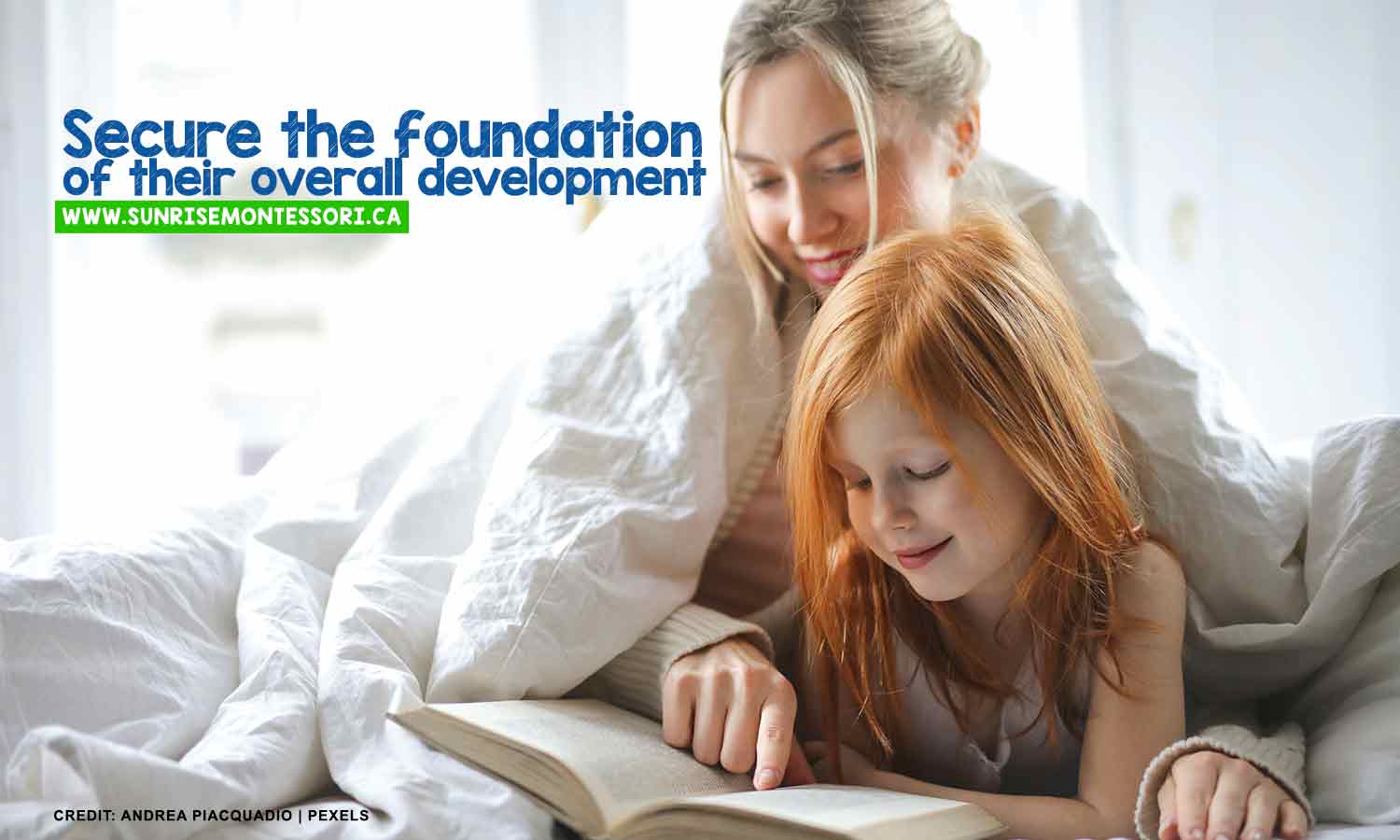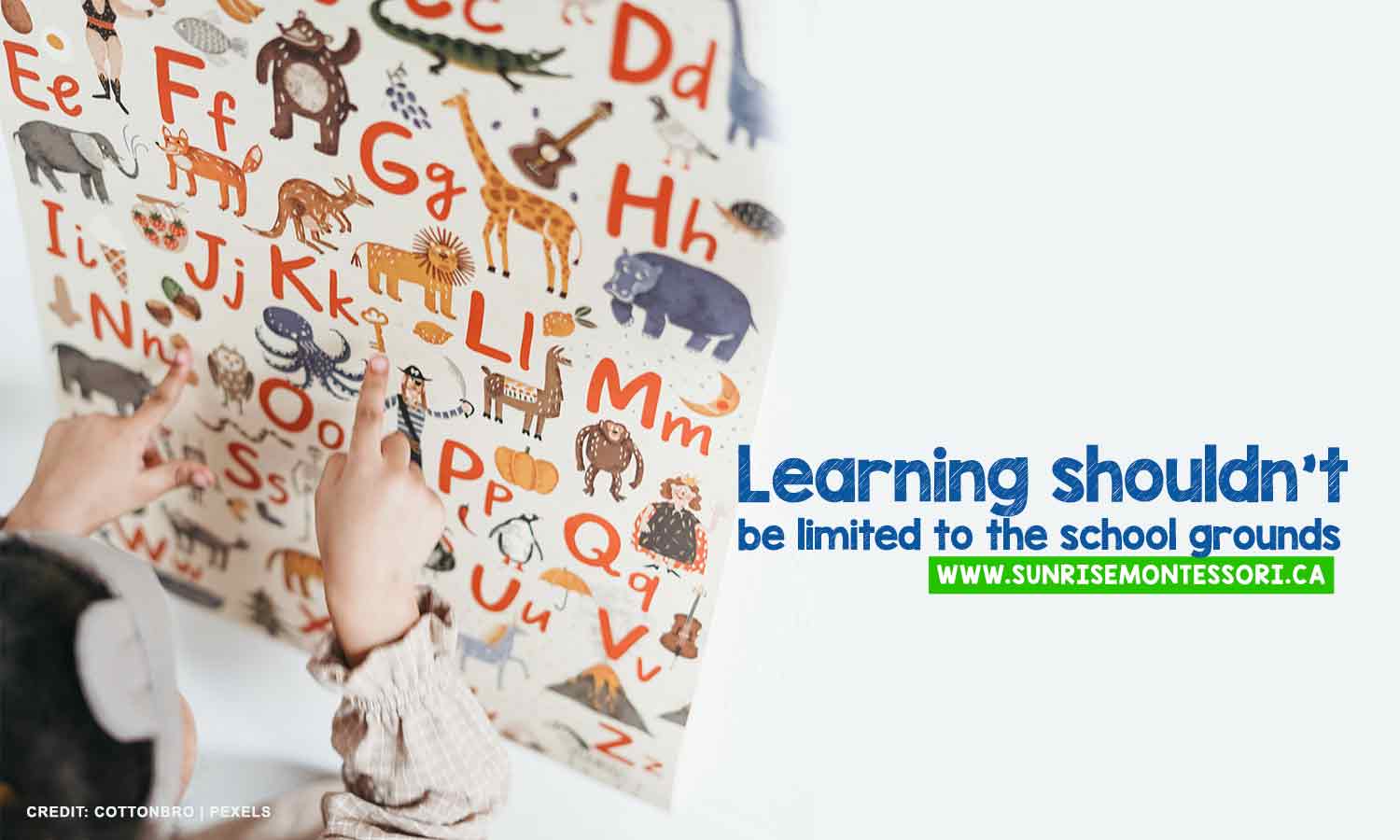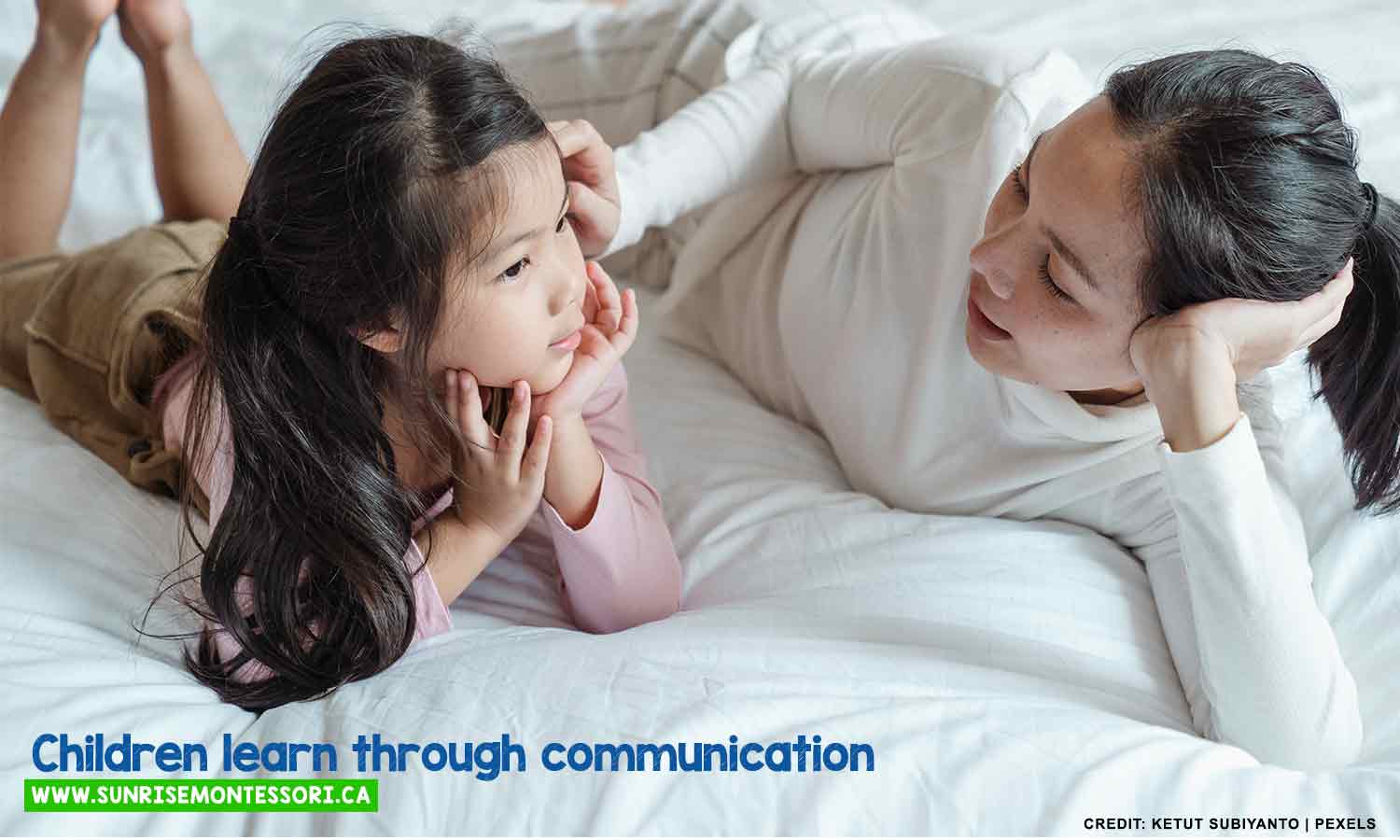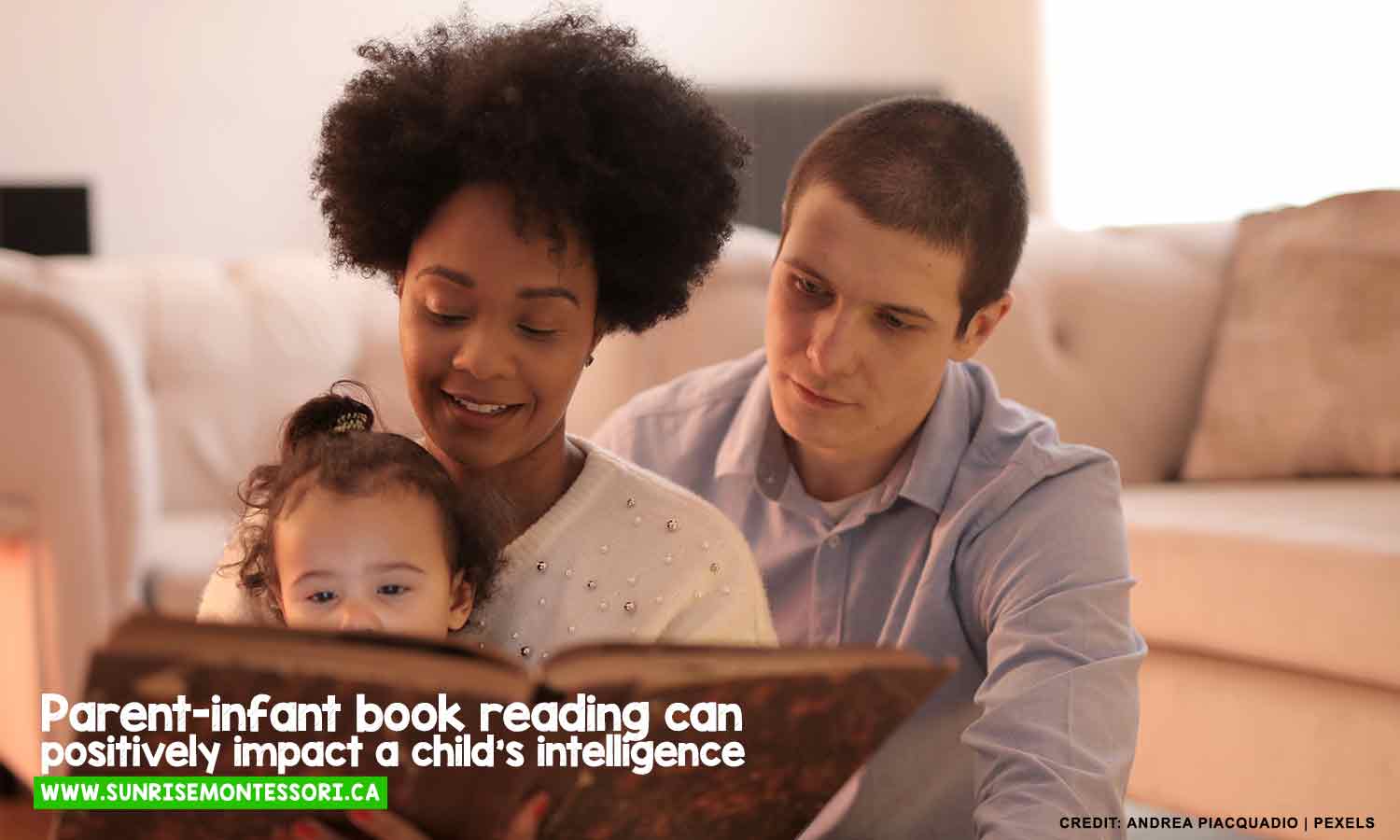The period from birth until preschool is considered a critical stage for development. By preschool age, it is important for children to be exposed to models and activities that would help them develop their social, emotional, motor, and cognitive skills. Children develop at different rates, but experts have provided a range of milestones by a period of development. This acts as a guide for educators and parents on the overall growth and development of children and detecting early signs of developmental delays.
It’s during the preschool age, from 3 to 5 years old, that significant cognitive development occurs. The child experiences changes in their “thinking skills.” They also make use of imagination to learn and play. They become more sophisticated with the way they organize, compare, contrast, analyze problems.
Cognitive Domain and Literacy Development

Literacy development in early childhood is an important component of a child’s overall development. It is about learning sounds, words, and language.
Additionally, there is an unquestionable relationship between early literacy and academic achievement. Literacy also serves as a foundation for socialization, independence, and financial intelligence.
This is the period where children should be exposed to and have sufficient experience with:
- Sounds (knowing which words rhyme, begin and end with the same letters, or can be broken into syllables)
- Letters and Words (learning their shapes and sounds)
- Pictures and Objects (being able to associate them with words)
Importance of Literacy at Home

Education and learning, more often than not, are primarily associated with schools or teacher-pupil interactions. However, research by the OECD Program for International Student Assessment (PISA) strongly argues that adult-children interaction is equally important in the child’s literacy development. Children will likely have a higher reading achievement at age 15 when their parents read and tell them stories in their early years.
Because of the current pandemic, protecting your child from the coronavirus remains paramount. However, adhering to stay at home orders entails staying out of schools and minimizing social contact. Parents now have an even bigger responsibility in the effort to improve their children’s literacy skills.
Here are some strategies and activities you can do to support your child’s literacy development:
Communicate With Your Child

A child’s ability to talk, listen, and understand progresses with back-and-forth communication. Initially, kids learn through imitation. Infants, for example, will smile when you smile and try to speak when you speak. They will also try to mimic your tone and expressions. With every interaction, they start to build their own vocabulary and language skills. Also, when you sing, the melodies can help kids learn voice modulation and pronunciation.
Activities:
- Sing with your child
This is what nursery rhymes are for. The Internet also houses a library of songs, you and your child can sing along to.
- Talk to your child often
Talk to them every day about various topics. Ask them about their day, their feelings, or talk to them about their eyes, nose, mouth. It is perfectly understandable to use “baby talk.”
Before your child can learn the language, they have to hear it and speak it first. Exposing them to a variety of words is how they will be able to absorb them.
- Let them tell you a story
Another way for your kid to develop their language skills is to let them speak. Have them describe an experience or make up a story. You can also provide them with prompts, like “Tell me about your favourite toy.”
This makes for a great after-dinner activity. Turn off the lights, light up a candle, and let the creativity flow. Kids love to talk. Eventually, mastery of oral storytelling will lead them to develop their skills in written storytelling.
- Emphasize words
Breaking words into segments or syllables can help them understand words faster. This is also an easy way to teach them letter names and their sounds. For example, you can say “dog” and then emphasize the “d” or break them in segments as “duh” – “aw” – “guh.”
Another way is to repeat and correct mispronounced words. For instance, if you hear your child say, “lellow,” you can respond to them, “Yes, it is yellow.”
There are toys, books, charts, cards, and puzzles that can aid you. Programs for smartphones and computers are also available.
Read to Your Kid

It is greatly advised to read with your child often from birth. You cannot introduce literacy too early. It also serves as a good bonding moment and strengthens your relationship. Research on the effects of shared parent-infant book reading shows that reading to kids as young as 9 months or earlier can positively impact their intelligence, language, and later literacy achievement.
By reading with them, you can show that reading can be fun, enrich their vocabulary, grow their imagination, introduce them to written works. At the same time, this allows you to help your child if they’re struggling with reading.
Activities:
- Read with them regularly
A child will learn to love reading if they are exposed to the activity regularly, or they have often observed their parents enjoy reading. Set aside some time for reading — no TV and no computer — and make it a habit. Make it fun for them too. You can cook some popcorn or even act out some scenes. Children learn best when they find the activity engaging.
- Point to each word as you read
This activity will assist your kid in connecting the sounds to the word, story, or illustrations. It will also help your kid track the one text to the next.
- Take note of your kid’s stories
Kids love to make up stories, so record it on your phone or jot them down. Turn them into a book, an animation, or a slideshow. They will love to see their ideas take on a new form through the written word. By doing so, you are also reinforcing their knowledge of words, storytelling, and grammar.
- Play reading games
There are many games you play with your kid. One of the classics is “I Spy”. Wherever you are, just say, “I spy with my eye, something that starts with…” Name the letter and have your kid search for a word or object that starts with it.
For your older child, you can play a rhyming game. Provide an initial word, like “bat,” and have them fill-in words that rhyme, such as “cat” or “mat”.
Make Art with Them

Way before your child can learn how to write, they often express their thoughts through drawings. This encourages the imagination and helps with word associations. Connecting words and phrases with pictures promotes balanced literacy development.
Activities:
- Illustrate the words
It is a common method to teach letters by linking them to words, like “A for apple.” However, for children to understand what an apple is, you need to show them a picture or even the real deal. Drawing a picture
- Encourage doodling
Literacy is not only about reading. It also includes writing. Provide your kids with pencils, crayons, and paper. Let them draw lines and curls. In time, they’ll learn how to write letters, words, and their own names.
Schools are temporarily closed because of COVID-19, but it shouldn’t stop learning. Parents can help with their kid’s reading comprehension at home. These at-home activities are so quick and easy.
If you’re looking for an institution to promote your child’s learning when the quarantine is over, turn to Sunrise Montessori School. We use the Montessori method of teaching to encourage holistic growth and development.
For inquiries or school tours, call us at (905) 477-2833 or send us a message at info@sunrisemontessori.ca.

